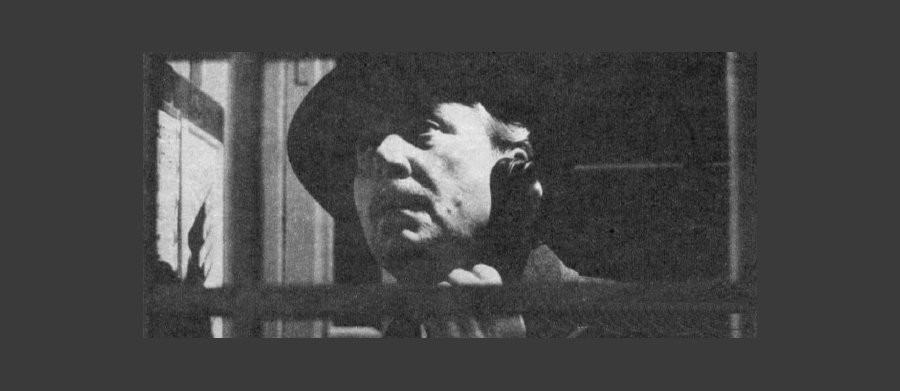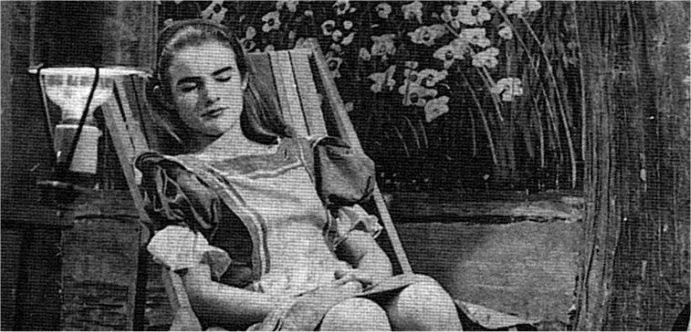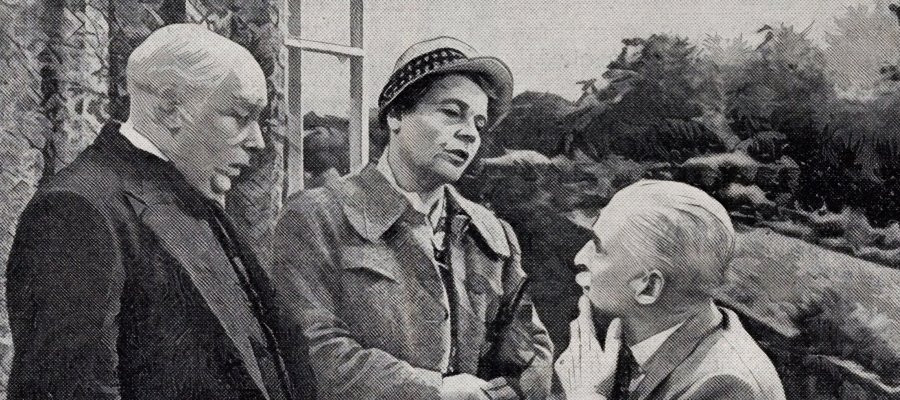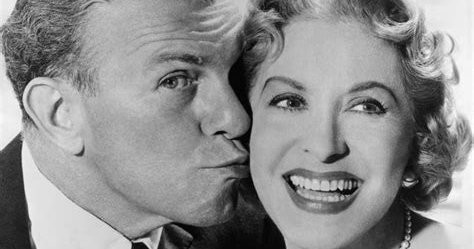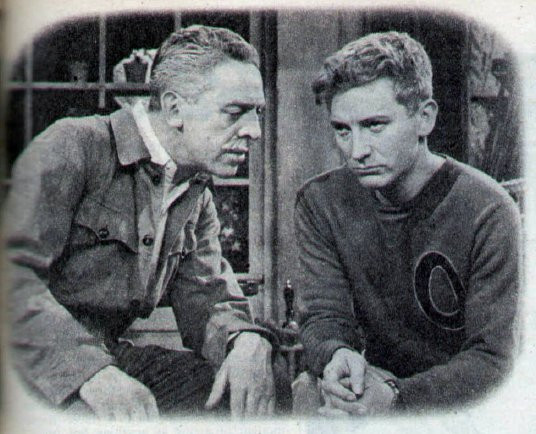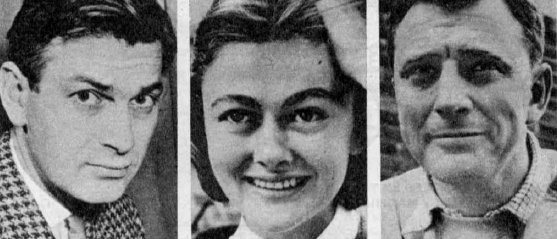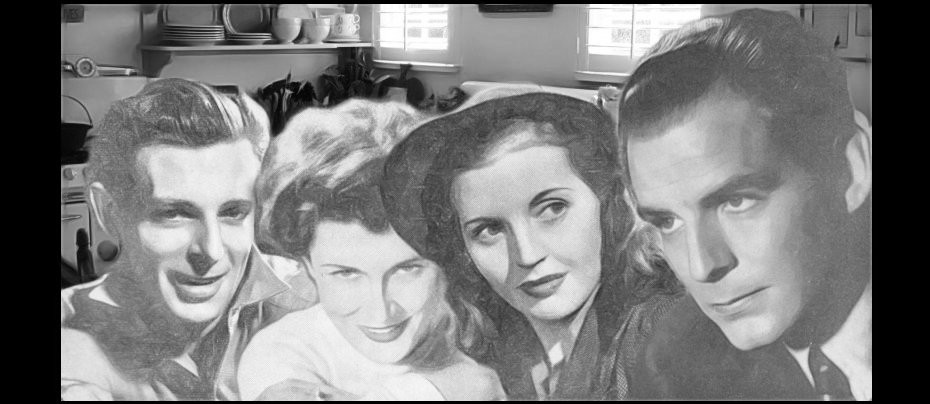
This Land of Ours
1950 - United KingdomIt can sometimes be misleading labelling a television programme as 'lost' when it doesn't exist in the archives of any television company. For something to be 'lost' then it must surely have been in someone's ownership in the first place. When it comes to live broadcasts there is often an assumption that a recording for posterity has been preserved somewhere or other. And with modern technology this is now the accepted norm. However, there are thousands of hours and years and years of broadcast television where that option simply wasn't available. And in cases like this, the only record of a broadcast's existence is either in the form of photographic evidence or a contemporary review. In many of these articles on 'lost' television programmes this is what Television Heaven relies on. Otherwise these television productions would indeed be lost to memory forever.
A case in point is Lionel Brown's play This Land of Ours, originally shown on BBC television on 18 June 1950. Strangely, the BBC's own publication Radio Times gives very little information about the play other than the usual short synopsis:
'The scene is a Shropshire farm, and the play covers the period of 1938 to 1944. 1938 is a year of slump for the Kentish’s. The father of the family, who owns Sweetmeadow Farm, is of the old school: he loves his horses as much as he hates tractors. ' The Kentish’s have farmed here,' he says, ' for 160 years, and our roots are deep in Sweetmeadow.' But times are bad for old-fashioned farmers...'
This lack of detail in this write-up is not unusual as in 1950 the BBC rightly regarded television as radio's poorer neighbour. 'Rightly?!' I hear you cry with indignation. Well, yes. Television, so despised by Lord Reith in its formative years, was still very much a novelty for most of the country. At the cost of around 63 guineas for a 12" television set (around £1800 in today's money) it was far beyond the pocket of the average household. The only thing that might’ve changed opinion was the possibility of a major event that would make owning a TV set an essential purchase. If only there was a Coronation in the offing?
Despite the Radio Times' lack of detail, it seems that the BBC's publicity department was working hard to redress the balance. Detailed information was sent to newspapers around the country to fill column inches in their daily television or entertainment guides, the most comprehensive of which appeared in Television Weekly, an all-too short-lived, but essential publication for any avid television watcher.
Writer Don Wood informed the magazine’s readership on Friday 16 June 1950 that:
'Lionel Brown has written a curious play-about life on the farm, to be seen on television on Sunday.
Briefly, the theme is concerned with Sweetmeadow Farm in Shropshire. There William Kentish is the farmer, with his two sons Will and Hiram, and a young agricultural student named Colin Stuart, to help him.
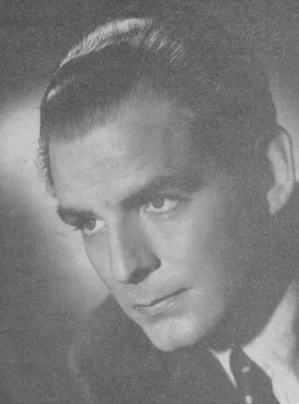
The play opens in the autumn of 1938; outwardly there is peace in the land. But William Kentish is in a spot of bother. His farm is not doing well; he has asked his old friend and solicitor, Mr. Horton, down for a few days to help him out. In the place of Mr. Horton comes his son, Geoffrey, a hard-headed young man with little sympathy for Kentish's insolvency. And Geoffrey loathes the countryside.
Will Kentish, the eldest son, has a violent temper, and he has no hesitation telling his father just how old fashioned he is in his methods of running the farm. Eventually, William Kentish washes his hands of the whole business, leaving his children to cope as best they can. There are a number of clashes of temperament between Will and Hiram, until Hiram suddenly disappears-having obtained the knowledge that Will has been showing large profits on the farm which haven't been shared out to the rest of the family.
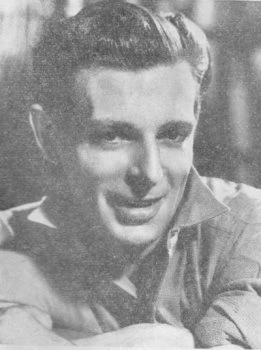
The way in which this profit has been accumulated is somewhat shady; and the family face ruin for the second time until the father turns up again to rectify the position.
"This Land of Ours" is a curious play. It stretches the imagination to the limit, and gives a quaint picture of farm life. However, it does bring out one important point: financially, farmers have an up-and-down life, with the accent, in this case, on the down.
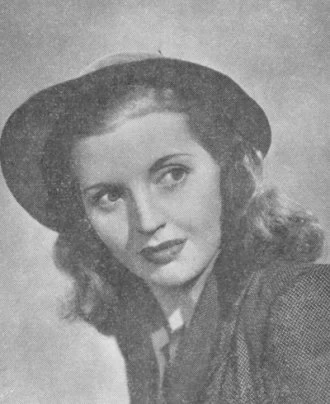
Among those taking part are George Woodbridge as William Kentish, Roderick Lovell as Will and John Eddon as the younger brother, Hiram. Farmer Kentish's daughters, Eileen - who runs the home - and Jessica, an actress, are played by Harriette Johns and Diane Watts respectively.'
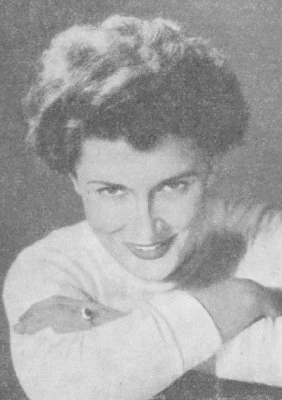
Playwright Lionel Brown was born on 5 October 1888 in Dublin, Ireland. He was a writer whose first film script was the quota quickie (a short support movie for the main feature - in this case running for around 60-minutes) The Price of Wisdom (1935) made by British & Dominions Film Corporation and starring Roger Livesey in an early role, before he went on to have a reasonably busy career as the quintessential upper-class type character actor in a number of television shows which included Boyd Q.C. (1961), Parkin's Patch (1970) and The Pallisers (1974). But I digress. Mr Brown went from the big screen to the small screen as early as 1939 adapting two of his stage plays - Square Pegs and Fox in the Morning, before the Second World War bought to an end what may have been a promising television writing career when the BBC closed down until 1945. It was 1950 before Lionel Brown returned to television, once again adapting his own stage work.
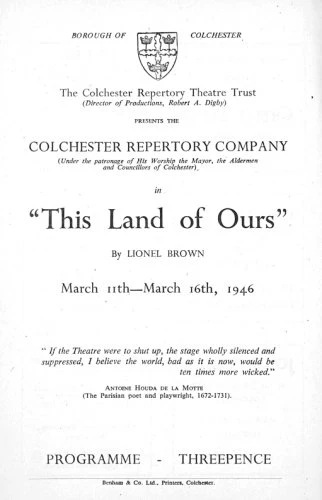
The play was presented under the banner of BBC Sunday-Night Theatre and Mr Brown wrote two more of these: Square Pegs (1951) and Stolen Waters (1954). It's been difficult to trace the history of This Land of Ours but a bit of digging found a stage production by the Colchester Repertory Company from 11 to 16 March 1946. The play may well have had more resonance with an audience just recovering from the trials and tribulations of the war, but it's questionable that it would have the same impact by the summer of 1950. The critics certainly didn't think so going by the only two reviews found.
According to the Essex Newsman, dated Tuesday 20 June 1950:
This Land of Ours, a play about the conflict of new and old ideas in farming, was perhaps rather an uneven play. It did not seem to work up to a real climax. It was also rather slow moving. Diane Watts as Jessica provided the only light relief in what might have been a dull play.
This play is really not worth a repeat on Thursday. (It was repeated, though - at 8.00pm on Thursday 22 June).
The above review was written by Sheila Pattison in a column titled 'For Television Fans...'
In the same column Ms Pattison bemoaned the fact that Children were the 'apple of producers' eyes,' receiving preferential treatment compared with their elders. 'The new building recently opened at Shepherds Bush, which contains larger and better studios than Alexandra Palace is being used almost exclusively for children's programmes,' she complained. 'This, in my opinion, is a complete waste of a good studio. I will even go so far as to say that to give television programmes to children is a waste of money, anyway, especially in the summer.'
'Why should children have these programmes? After all, what good does it do them? If it is educational, the children will get bored and not watch very closely. And this time of the year they would be very much better off out of doors', wrote Ms Pattison who may well have modelled her style on Ebeneezer Scrooge before going on to possibly be the inspiration for Ian Fleming's child catcher in Chitty Chitty Bang Bang.
The Birmingham Weekly Post on Friday 23 June was even less flattering about This Land of Ours: 'It would obviously be asking too much of a play about farm life to be free from (a) frustrated overworked women and (b) passionate ill-tempered menfolk. This Land of Ours by Lionel Brown, someone’s choice for the week’s television play, goes for both types. The dialogue of this long-drawn-out novelettish piece was so artificial that at several points during the evening I felt convinced the whole thing had been elaborately prepared as propaganda for a new Milk Marketing Board. It was quite a surprise to discover that viewers who were expected to take it seriously, could.'
Lionel Brown wrote for television less than a handful of times after 1954 and died on 15 June 1964 in College Hill, Shrewsbury, Shropshire. His plays may not be available for viewing, but at least the information is no longer ‘lost.’
Seen this show? How do you rate it?
Seen this show? How do you rate it?
Published on January 12th, 2023. Written by Laurence Marcus for Television Heaven.


